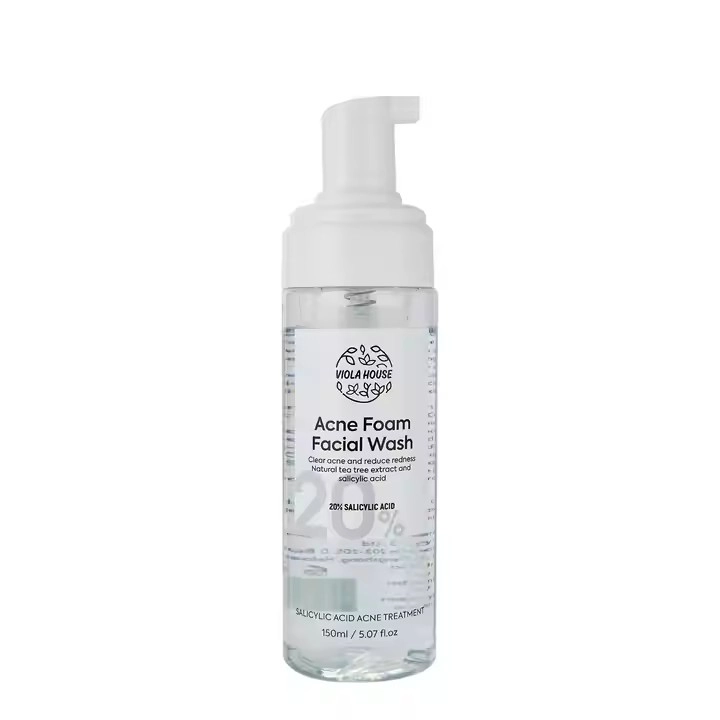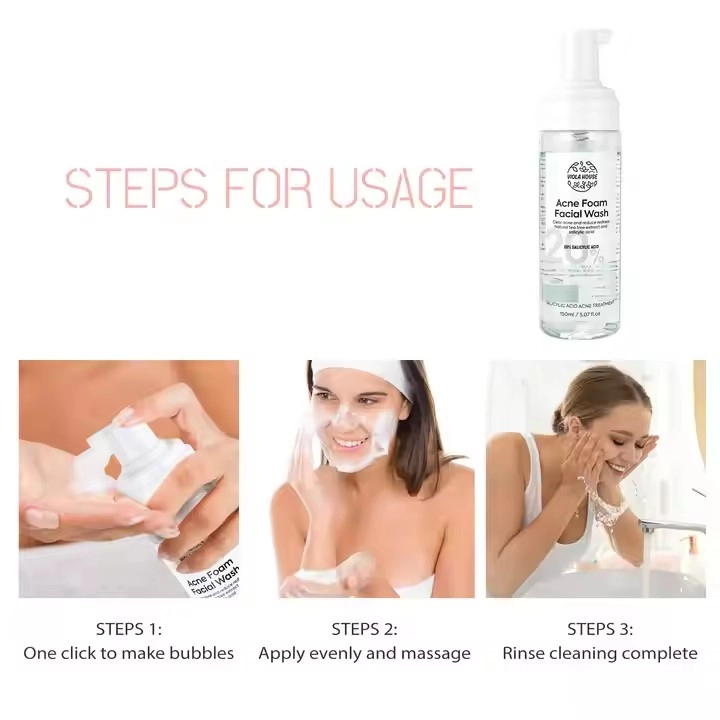Views: 220 Author: cosmeticsinhot Publish Time: 2025-11-05 Origin: Site








Content Menu
● Understanding Sensitive Skin
>> Common Triggers for Sensitive Skin
>> 1. Sulfates
>> 2. Fragrance
>> 3. Alcohol
>> 5. Parabens
>> Look for Gentle Formulations
Sensitive skin requires special care, especially when it comes to choosing the right facial cleansers. Many common ingredients found in skincare products can cause irritation, redness, and discomfort. This article will explore the ingredients you should avoid in facial cleansers if you have sensitive skin, helping you make informed choices for your skincare routine.

Sensitive skin is characterized by a heightened reaction to various stimuli, including environmental factors, skincare products, and even certain foods. People with sensitive skin often experience symptoms such as redness, itching, burning, and dryness. Understanding the triggers for sensitive skin is crucial in selecting the right products.
1. Environmental Factors: Changes in weather, pollution, and sun exposure can exacerbate sensitivity.
2. Diet: Certain foods, especially those high in sugar or allergens, can lead to skin reactions.
3. Skincare Products: Ingredients in cleansers, moisturizers, and makeup can irritate sensitive skin.
When selecting a facial cleanser, it's essential to be aware of specific ingredients that can aggravate sensitive skin. Here are some of the most common culprits:
Sulfates, such as sodium lauryl sulfate (SLS) and sodium laureth sulfate (SLES), are often used in cleansers for their foaming properties. However, they can strip the skin of its natural oils, leading to dryness and irritation. For sensitive skin, it's best to choose sulfate-free cleansers that provide gentle cleansing without harsh effects.
Fragrance is a common ingredient in many skincare products, but it can be a significant irritant for sensitive skin. Both synthetic and natural fragrances can cause allergic reactions and irritation. Look for fragrance-free products or those labeled as hypoallergenic to minimize the risk of adverse reactions.
Certain types of alcohol, particularly denatured alcohol and isopropyl alcohol, can be very drying and irritating to sensitive skin. While some alcohols, like cetyl and stearyl alcohol, are fatty alcohols that can be beneficial, it's essential to avoid those that can strip moisture from the skin.
While exfoliating acids like glycolic acid and salicylic acid can be effective for many skin types, they can be too harsh for sensitive skin. These acids can lead to increased redness and irritation. If you have sensitive skin, consider gentler alternatives like polyhydroxy acids (PHAs), which provide exfoliation without the harsh effects.
Parabens are preservatives used in many cosmetics and skincare products to prevent bacterial growth. However, they can cause skin irritation and have been linked to hormonal disruptions. Opt for paraben-free products to reduce the risk of irritation.
While essential oils are often touted for their natural benefits, they can be irritating to sensitive skin. Oils like lavender, tea tree, and eucalyptus can cause allergic reactions or sensitivity. If you enjoy the benefits of essential oils, use them sparingly and in diluted forms.
Artificial colors and dyes can also be irritating to sensitive skin. These synthetic additives can cause allergic reactions and should be avoided. Look for products that use natural colorants or are free from added colors.
Physical exfoliants, such as scrubs with large granules or beads, can cause micro-tears in the skin, leading to irritation and inflammation. Instead, opt for gentle exfoliating cleansers that use softer ingredients or chemical exfoliants that are less abrasive.
When selecting a facial cleanser for sensitive skin, consider the following tips:
Choose cleansers that are specifically formulated for sensitive skin. These products often contain soothing ingredients like aloe vera, chamomile, or calendula, which can help calm irritation.
Always read the ingredient list before purchasing a product. Avoid any cleansers that contain the ingredients mentioned above, and look for those that are free from fragrances, sulfates, and harsh chemicals.
Before using a new cleanser, perform a patch test on a small area of skin to check for any adverse reactions. This can help you identify potential irritants before applying the product to your entire face.
Different types of sensitive skin may react differently to various ingredients. For example, if you have oily sensitive skin, you may benefit from a gel-based cleanser, while dry sensitive skin may require a creamier formulation.
If you're unsure about which products to use, consider consulting a dermatologist. They can provide personalized recommendations based on your skin type and concerns.
Choosing the right facial cleanser is crucial for maintaining healthy skin, especially for those with sensitive skin. By avoiding harsh ingredients like sulfates, fragrances, and certain alcohols, you can help prevent irritation and keep your skin looking and feeling its best. Always prioritize gentle formulations and listen to your skin's needs.

1. What are the best types of cleansers for sensitive skin?
- Look for cream-based or gel cleansers that are labeled as gentle or formulated for sensitive skin. Ingredients like aloe vera and chamomile are beneficial.
2. Can I use exfoliating cleansers if I have sensitive skin?
- It's best to avoid harsh exfoliating cleansers. Instead, opt for gentle exfoliants or those containing polyhydroxy acids.
3. Are natural ingredients always safe for sensitive skin?
- Not necessarily. Some natural ingredients, like essential oils, can irritate sensitive skin. Always check for potential allergens.
4. How can I tell if a product is safe for my sensitive skin?
- Look for products labeled as hypoallergenic, fragrance-free, and free from sulfates and parabens. Always perform a patch test before full use.
5. What should I do if I experience irritation from a product?
- Discontinue use immediately and consult a dermatologist if irritation persists. They can help identify the cause and recommend suitable alternatives.
Hot Tags: China, Global, OEM, private label, manufacturers, factory, suppliers, manufacturing company